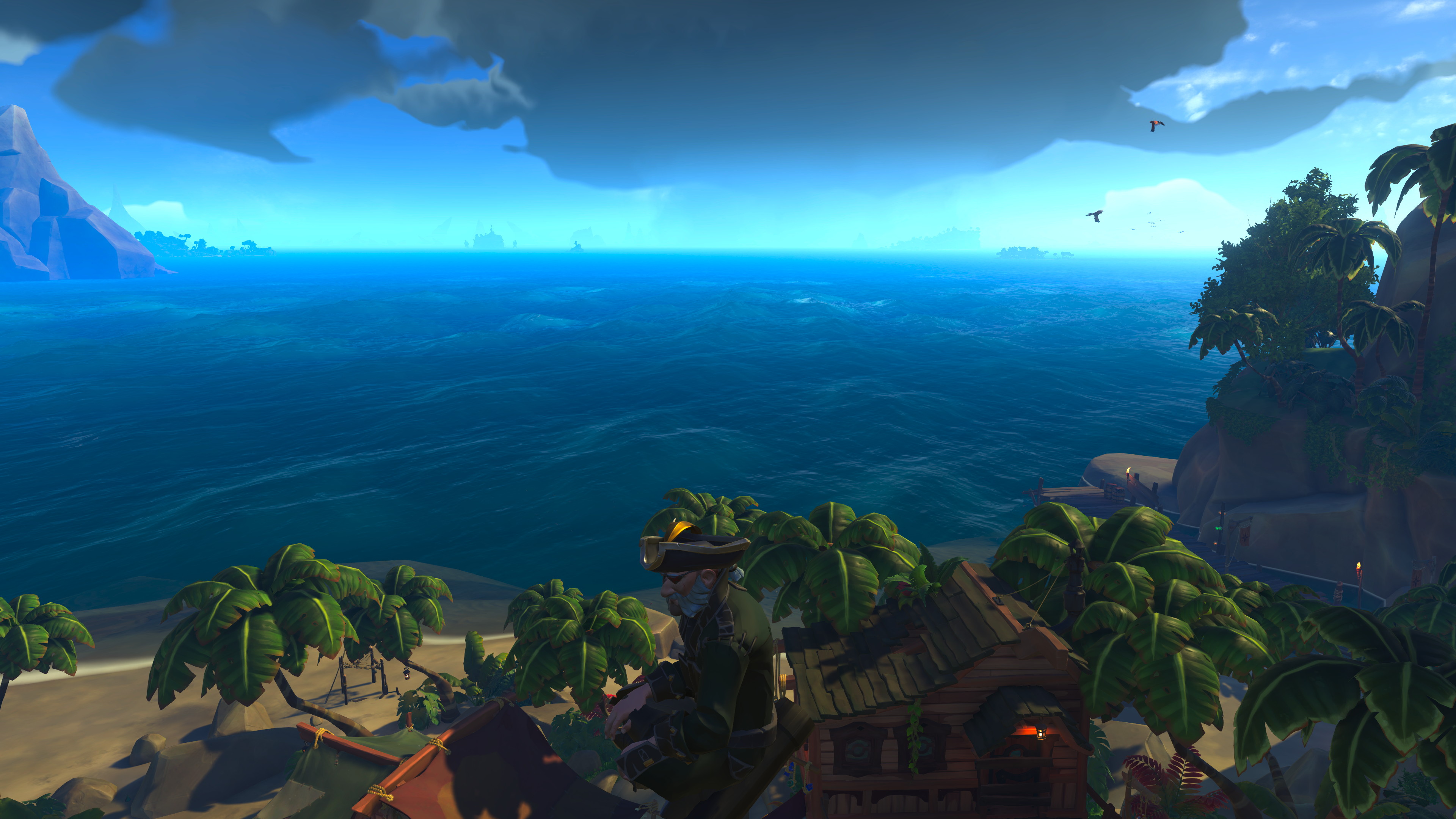So much for the death of Xbox

The gaming Internet lost its shit yet again earlier this month. This time it was the turn of Xbox fans after information was leaked that Xbox were going to be making some of their exclusive titles available on Playstation and Nintendo Switch. Known for their rational and level-headed approach to speculation, Xbox Twitter quickly descended into claims that Halo, Gears, Forza, Starfield, Indiana Jones and other titles would launch on PS5 and that Xbox would completely stop making hardware and die as a brand. Phew. Xbox boss Phil Spencer added fuel to the fire by not denying the rumours and only stating Xbox would release a business update the following week. So what’s going on?
Reports of my demise have been greatly exaggerated
Needless to say, despite the predictions of the keyboard experts, in an Xbox business update on Thursday , Phil Spencer was keen to reiterate Microsoft’s commitment to hardware and games. There was however, an element of truth to the rumours. 4 specific Xbox-exclusive games were going multi platform. These were not named by Phil at the time, but have since been confirmed as Sea of Thieves, Grounded, Hi-Fi Rush and Pentiment.
Xbox is keeping our promise to bring more games to more players around the world.
— Xbox (@Xbox) February 15, 2024
With an incredible year of major releases like Senua’s Saga: Hellblade II, Indiana Jones and the Great Circle, Avowed, Ara: History Untold, Towerborne and more — 2024 is going to be great for Xbox…
While I haven’t played the others, as a player of Sea of Thieves I can understand why this makes perfect sense for Rare’s charming pirate-em-up. It offers an influx of new players and opportunities to grow the game beyond the current Xbox and PC player base. While Sea of Thieves is a fantastic game, it’s 5 years old and isn’t exactly a core system seller. Its community focused gameplay makes perfect sense to bring to other platforms in order to grow the player base.

Sea of Thieves is a beautiful, community-driven game that deserves to be experienced by more people.
We’re not talking about Gears, Halo, or Forza here.
Spencer was keen to reiterate that Xbox have no plans to abandon the hardware side of gaming, and are already working away on the next generation of Xbox hardware, with the usual claims of incredible leaps in performance and so on.
They reassured existing Xbox players that the Xbox ecosystem is going nowhere, and one of their key pillars is to ensure people keep their purchases and progress as things move increasingly digital. They recognise people have bought into the ecosystem so don’t want to punish them for that by shutting it down.
It’s crazy it was allowed to get to this stage before official communication was released to tackle the rumours which were spiralling out of control. It’s not a new situation for Xbox however. After smashing the Xbox 360 generation, it seems they’ve constantly been on the back foot since the disastrous Xbox One launch event where Don Mattrick announced plans for all-digital, always-on, Kinect-in-every-living-room, which went down like a lead balloon.
In a recent episode of Podcast Unlocked, the panel spoke of the long-standing issues Xbox has with PR and how reactive they continue to be. They’re not wrong. This is just the latest in a long line of PR crises, including the infamous Xbox One launch with its focus on TV, Kinect and all-digital future which almost caused Microsoft to abandon Xbox entirely, 2022’s “Xbox has no games” “debate”, and lately the lukewarm reception to the long-anticipated and Xbox-exclusive Starfield.
Xbox have a tendency to keep quiet until something hits the fan, and then try and manage the damage, instead of getting out in front of things and controlling the narrative. It’s been an issue for years and has somewhat undone a lot of good work that has been put in on the actual system and services.
Does Xbox consistently get it wrong?
It’s interesting looking back over Xbox’s strategy for the last 10 years or so since the disastrous Xbox One launch event. The focus on Kinect, TV, and really anything but gaming damaged the brand but looking back on lots of the announcements and features, in many ways it was ahead of its time.
In 2013 Microsoft pushed for an all-digital future where the console would require online connectivity and pre-owned games would be dead. Understandably there was uproar and pushback from users who were only just starting to get used to the idea of digital media in film and music, with the likes of Spotify and Netflix only just beginning to develop into the titans they are today. Memorably, Sony jumped on the convoluted digital game-sharing proposal with a superb tongue-in-cheek video that highlighted the ease of physical game sharing:
While Kinect being core to the Xbox was a misstep, I’d argue Microsoft was simply wrong in its timing and tone of the all-digital/online message, rather than the core strategy. Over the past decade we’ve seen a push towards digital, with an initial foray by EA Access followed by the launch and growth of Xbox Game Pass. Game Pass in particular was being a huge development for the industry as a whole, establishing the Netflix model as a viable option for gaming. Whether you’re a fan of the subscription model or not, it’s clear it’s here to stay, with more major publishers launching their own services. Game Pass has been an excellent addition in my opinion, to the point where I hardly ever buy games any more, outside a few core titles. If it’s a Microsoft first party game, I know they’ll be on Game Pass day one, so it’s really only big launches from other publishers that I need to think about purchasing.

Games like Starfield launching into Game Pass day one have helped drive subscription numbers.
Looking back over the messaging since Phil Spencer came in, it’s actually not that surprising to see some Xbox exclusives coming to other platforms. The message has always been “we want to bring Xbox to whatever devices you use”, whether that’s in reference to Xbox Cloud Gaming allowing you to play Xbox via your phone, or Game Pass, or Xbox games launching on other platforms.
The pre-owned games market seems to be dropping off, with retailers who have long been at the front of the market ceasing trade-ins.
Let’s not forget that Microsoft is a software and services company, rather than a hardware one. For Microsoft, hardware is about getting more customers into their ecosystem, whether that’s gamers via Xbox, Windows/Office users via Surface, or using their Azure cloud platform to deliver compute services (like Xbox Cloud Gaming). MS were always going to build an Xbox ecosystem in which the console is only one way to enter. It’s not crazy to think that they might stop producing Xbox hardware at some point in the future, but I’d wager we’re a few generations away from this. High-speed Internet isn’t reliable or widespread enough for a fully cloud-based gaming experience, and other console manufacturers aren’t currently open to hosting the Xbox platform on their devices. It’ll be interesting to see if this changes over time. I certainly wouldn’t bet against a more shared future where Xbox games (and Game Pass) can be made available on other devices.
Microsoft are in it for the long game but are very forward thinking. Their challenge is less about the overall direction and more about how and when they communicate and introduce big changes to users. Many people hate all-digital but it’s coming.
Conclusion
I’m bought in on Xbox. I love the brand and am very happy with the current generation console. I can enjoy most games I want to and don’t have too much fomo over the Playstation exclusives. I’d love to play some of them (Helldivers 2 looks awesome) but not enough to fork out £400 for another console (I also can’t stand the PS controller). My kids have a Switch now so I can dabble with Nintendo on that and have been thoroughly enjoying playing through the utterly charming Super Mario Odyssey.
I’m glad Xbox isn’t dead (in my opinion it was never in doubt) and I’m looking forward to what the future brings.